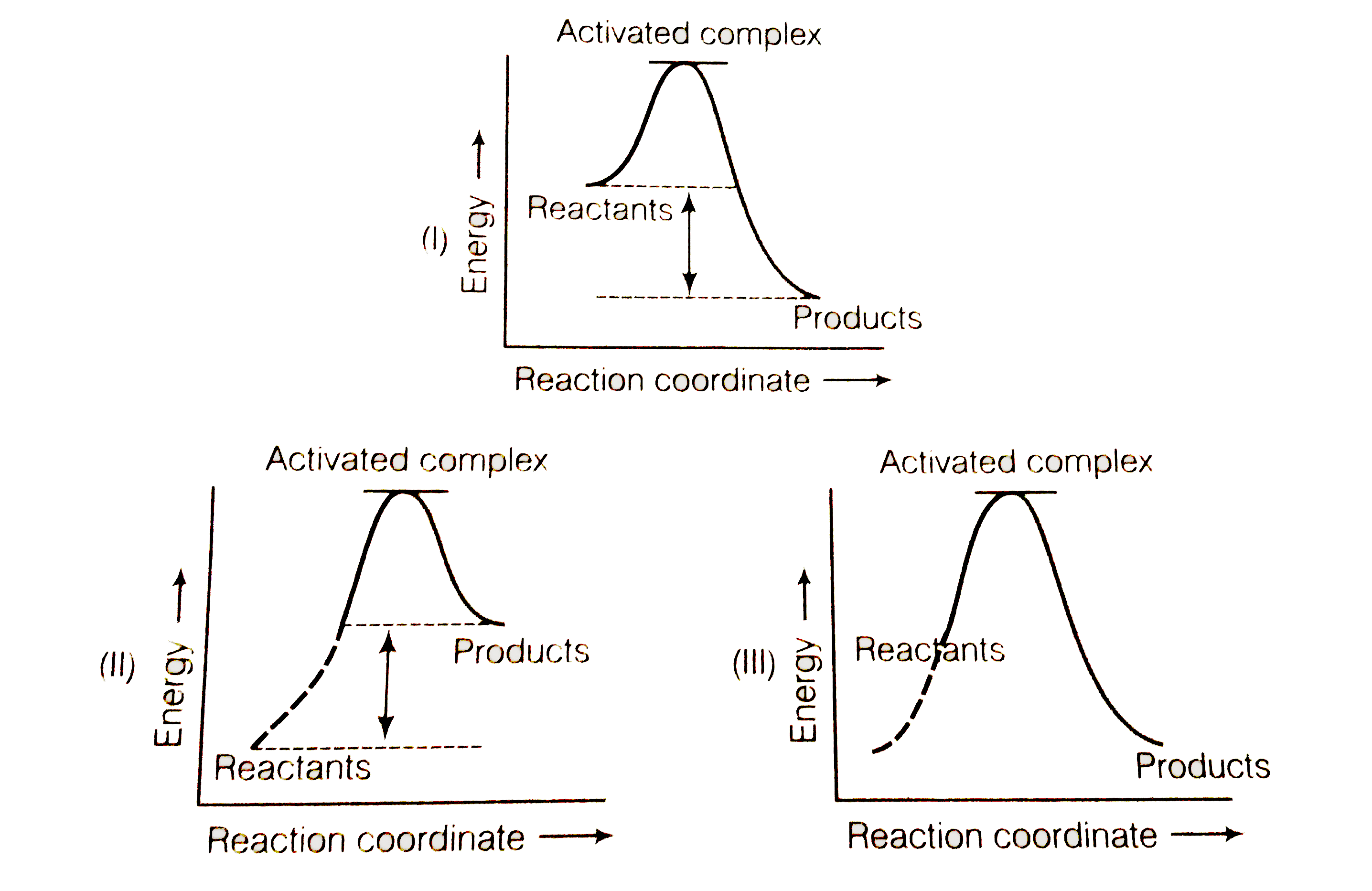Which of the following reactions is not exothermic
C(s)+O2(g)→CO2(g)
C(s)+2S(s)→CS2(g)
CH4(g)+2O2(g)→CO2(g)+2H2O(l)
CO(g)+12O2(g)→CO2(g)
The correct Answer is:B
To determine which of the following reactions is not exothermic, we need to analyze the nature of each reaction provided in the options.
Step 1: Understand Exothermic Reactions
Exothermic reactions are those that release energy, usually in the form of heat, to the surroundings. Common examples include combustion reactions, where a substance reacts with oxygen to produce heat and light.
Step 2: Identify the Reactions
Let's consider the reactions typically provided in such questions:
1. Combustion of carbon: C+O2→CO2
2. Combustion of hydrogen: 2H2+O2→2H2O
3. Formation of nitrogen oxides: N2+O2→2NO
4. Formation of carbon disulfide: C+2S→CS2
Step 3: Analyze Each Reaction
- Combustion of Carbon: This reaction is exothermic as it releases heat when carbon reacts with oxygen to form carbon dioxide.
- Combustion of Hydrogen: This reaction is also exothermic as it releases heat when hydrogen reacts with oxygen to form water.
- Formation of Nitrogen Oxides: The formation of nitrogen oxides (like NO) from nitrogen and oxygen is an endothermic reaction. It requires energy input to proceed.
- Formation of Carbon Disulfide: This reaction is typically endothermic as it requires heat to form carbon disulfide from carbon and sulfur.
Step 4: Conclusion
Based on the analysis:
- The reactions that are exothermic are the combustion reactions (1 and 2).
- The reaction that is not exothermic is the formation of nitrogen oxides (3) and the formation of carbon disulfide (4).
However, if we are to choose one option that is clearly not exothermic among typical choices, it would be the formation of nitrogen oxides.
Final Answer
The reaction that is not exothermic is the formation of nitrogen oxides: N2+O2→2NO.
---
Exothermic reactions are those that release energy, usually in the form of heat, to the surroundings. Common examples include combustion reactions, where a substance reacts with oxygen to produce heat and light.
Let's consider the reactions typically provided in such questions:
1. Combustion of carbon: C+O2→CO2
2. Combustion of hydrogen: 2H2+O2→2H2O
3. Formation of nitrogen oxides: N2+O2→2NO
4. Formation of carbon disulfide: C+2S→CS2
- Combustion of Carbon: This reaction is exothermic as it releases heat when carbon reacts with oxygen to form carbon dioxide.
- Combustion of Hydrogen: This reaction is also exothermic as it releases heat when hydrogen reacts with oxygen to form water.
- Formation of Nitrogen Oxides: The formation of nitrogen oxides (like NO) from nitrogen and oxygen is an endothermic reaction. It requires energy input to proceed.
- Formation of Carbon Disulfide: This reaction is typically endothermic as it requires heat to form carbon disulfide from carbon and sulfur.
Based on the analysis:
- The reactions that are exothermic are the combustion reactions (1 and 2).
- The reaction that is not exothermic is the formation of nitrogen oxides (3) and the formation of carbon disulfide (4).
The reaction that is not exothermic is the formation of nitrogen oxides: N2+O2→2NO.
Topper's Solved these Questions
- THERMODYNAMICS AND THERMOCHEMISTRY BOOK - ERRORLESS CHAPTER - THERMODYNAMICS AND THERMOCHEMISTRY EXERCISE - ORDINARY THINKING (Objective Questions) Bond energy
15 Videos
- THERMODYNAMICS AND THERMOCHEMISTRY BOOK - ERRORLESS CHAPTER - THERMODYNAMICS AND THERMOCHEMISTRY EXERCISE - ORDINARY THINKING (Objective Questions) Free energy and Work function
57 Videos
- THERMODYNAMICS AND THERMOCHEMISTRY BOOK - ERRORLESS CHAPTER - THERMODYNAMICS AND THERMOCHEMISTRY EXERCISE - ORDINARY THINKING (Objective Questions) First law of thermodynamics and Hess law
100 Videos
- SOME BASIC CONCEPTS OF CHEMISTRYBOOK - ERRORLESS CHAPTER - SOME BASIC CONCEPTS OF CHEMISTRYEXERCISE - JEE Section (Matrix Match type questions)
3 Videos
Similar Questions
Knowledge Check
Which of the following reactions is most exothermic ?
A B
B C
C D
D
Which of the following reactions are exothermic in nature?
ACombustion of CarbonBBond breakingCBond formationDBoth (a) and (c)Which of the following represents an exothermic reaction :-
AN2(g)+O2(g)→2NO(g),ΔH=180.5KJBH2O(g)+C(s)→CO(g)+H2(g),ΔE=131.2KJC2HgO(s)+180.4KJ→2Hg(l)+O2(g)D2Zn(s)+O2(g)→2ZnO(s),ΔE=−693.8KJ
Which of the following processes is exothermic?
View SolutionWhich of the following processes is exothermic?
View SolutionWhich of the following processes is exothermic?
View SolutionWhich of the following processes is exothermic?
View SolutionWhich of the following process is exothermic?
View Solution


